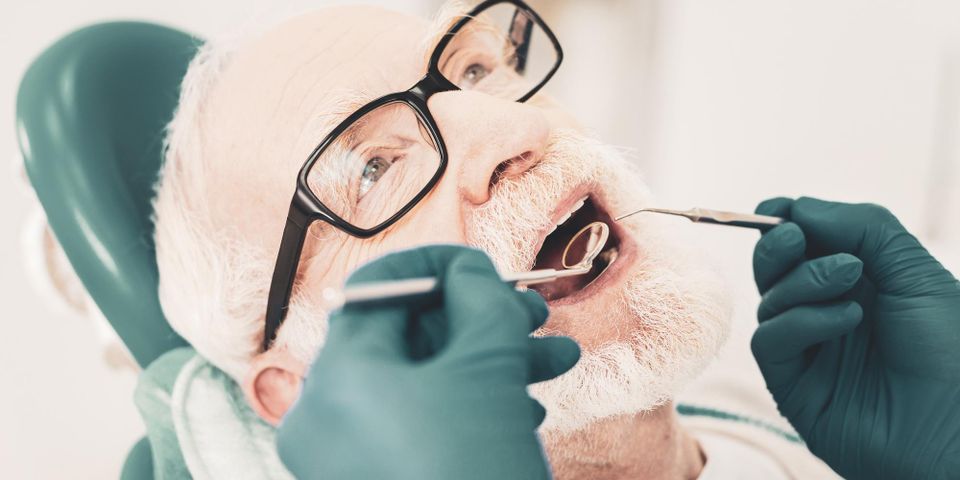
Osteoporosis, a medical condition in which the bones become less dense and more susceptible to fractures, affects more than half of people over the age of 50. Although fractures of major bones, like the hip, are a primary concern for those who have osteoporosis, the disease also has a significant impact on oral health. In fact, many patients actually learn they have symptoms of osteoporosis during a visit to the dentist. Here’s what you need to know.
What Is Osteoporosis?
Throughout people’s lives, the bones constantly lose and rebuild bone tissue. However, as you age, this process can be altered by certain factors, creating an imbalance that reduces how much bone is actually rebuilt. Some of those factors can’t be changed, such as your age, hormone levels, genetic factors, ethnicity, and height, while other factors are lifestyle-related, such as diet and exercise. Certain medications and diseases, such as autoimmune conditions and arthritis, can also increase the risk of osteoporosis. Regardless of the cause of osteoporosis, the effect is still the same: the small holes that naturally occur in your bones become bigger, making your bones brittle and more likely to break.
How Does It Affect the Teeth?
 Osteoporosis and your oral health are closely related. Your jaw and teeth are made from bone, and therefore, aren’t immune to the effects of the disease. In fact, women with osteoporosis are three times as likely to lose teeth than those without, as the loss of bone density in the jawbone can cause teeth to fall out. This is in addition to an increased risk of fracture, as well as problems with fitting dentures and complications from dental procedures. Your dentist may even find more signs of periodontitis, or gum disease, if you have osteoporosis. This may be caused by brittle bones allowing more bacteria to build up, underscoring the need for regular visits to the dentist for cleanings and exams to prevent tooth loss.
Osteoporosis and your oral health are closely related. Your jaw and teeth are made from bone, and therefore, aren’t immune to the effects of the disease. In fact, women with osteoporosis are three times as likely to lose teeth than those without, as the loss of bone density in the jawbone can cause teeth to fall out. This is in addition to an increased risk of fracture, as well as problems with fitting dentures and complications from dental procedures. Your dentist may even find more signs of periodontitis, or gum disease, if you have osteoporosis. This may be caused by brittle bones allowing more bacteria to build up, underscoring the need for regular visits to the dentist for cleanings and exams to prevent tooth loss.
How Can You Prevent Dental Complications?
Seeing a dentist regularly is important for early detection of osteoporosis, as regular dental X-rays can reveal changes in your bone density. However, it’s also important to have regular dental checkups because many of the signs and symptoms of gum disease mimic those of osteoporosis, including loose teeth and ill-fitting dentures. Your dentist can determine the exact cause and help determine the best treatment. Maintaining a healthy lifestyle, including exercising regularly, eating a healthy diet high in calcium and vitamin D, reducing alcohol use, and not smoking, will help prevent osteoporosis and keep your smile bright and healthy.
If you’re looking for a dentist to help maintain your teeth, visit the experts at High Point Smile Dentistry. Their dental experts have served Guildford County, including High Point, NC, for more than 15 years, offering preventive care, restorative dental services, teeth whitening, and orthodontics for the entire family. To schedule a visit today, call (336) 884-4000 or send the team a message online.
About the Business
(490 reviews)
Have a question? Ask the experts!
Send your question

